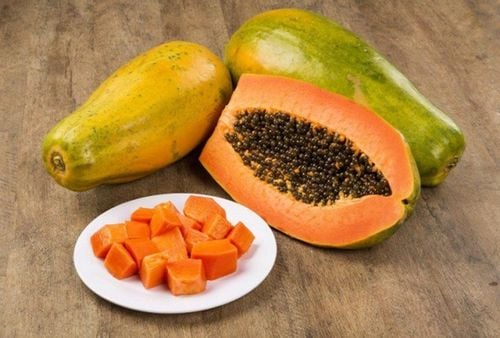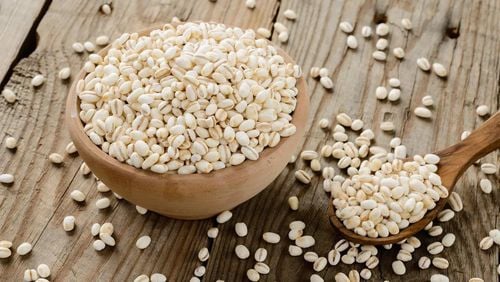Papaya is rich in antioxidants such as lycopene, and contains a safe amount of sugar, making it a good food choice to combat various health issues, particularly diabetes. Read the following article to learn about the top health benefits of papaya and whether people with diabetes should eat it.
1. Should Diabetics Eat Papaya?
Diabetes is a condition where the body does not produce enough (or any) insulin, or does not use insulin properly. Insulin is a hormone that helps glucose, or sugar, enter the body’s cells. If your body does not produce or use insulin correctly, sugar can build up in your blood.
Some people use medication to control their blood sugar, while others manage high blood sugar with exercise and a healthy diet. While fruits in general are part of a healthy diet, some fruits have higher natural sugar content, so consuming too much can be harmful to blood sugar levels. A common question is whether people with diabetes can eat papaya. The good news is that papaya is safe to eat if you have diabetes.
People with diabetes are often encouraged to consume high-fiber foods to lower their blood sugar levels. However, they should also limit their intake of sugary and high-sugar foods. Papaya is a popular fruit found widely around the world. Since papaya is rich in fiber and low in sugar (8.3 grams per cup of sliced papaya), it is considered a healthy food for diabetics. Surprisingly, this greenish-orange fruit has many health benefits when eaten daily. It contains essential vitamins such as vitamin A, B, C, and E, as well as minerals like folate, magnesium, copper, potassium, lutein, and pantothenic acid. Vitamin C, along with other antioxidants in papaya, also helps reduce the risk of heart disease in diabetics. High blood sugar in diabetes occurs due to the pancreas cells' activity, which should be managed through regular exercise and a healthy diet.

2.Papaya and Diabetes
Fruits have a natural sweetness, and since consuming sugar affects blood sugar levels, some people may think that fruits are off-limits. However, fruits are actually a part of a healthy diet and can be eaten in moderation.
2.1. Sugar Content
A cup of papaya contains approximately 8.3g of sugar. The American Heart Association recommends that everyone should limit the amount of added sugar they consume to no more than half of their discretionary calories per day, or their remaining calorie deficit after consuming nutrient-dense foods.
For most women, this means no more than 100 calories per day, or about 6 tablespoons of sugar. For men, it's about 150 calories per day, or about 9 teaspoons of sugar.
Papaya contains a safe amount of sugar for diabetics. Some studies also show that papaya has components that may slow the progression of type 2 diabetes. Papaya is rich in the enzyme papain, which helps protect diabetics from the damage caused by free radicals.
2.2. Glycemic Index
The glycemic index (GI) is a value assigned to different foods indicating how quickly a certain food raises blood sugar levels. This can be useful for people with diabetes trying to keep their blood sugar levels within their target range. Papaya has a GI score of 60, which means it does not raise blood sugar levels too quickly.
Foods with a low glycemic index have scores ranging from 20 to 49, foods with a moderate glycemic index range from 50 to 69, and foods with a high glycemic index range from 70 to 100.
2.4. Potential Benefits
Papaya is not only a good choice for diabetics because of its moderate GI score. Eating papaya can also help reduce blood sugar levels.
According to some reports, papaya may have a hypoglycemic effect on the body. The fruit contains flavonoids, which are natural antioxidants that can help regulate blood sugar levels.
2.5. Papaya is Rich in Vitamins and Fiber
Papaya contains essential vitamins such as vitamin A, B, C, and E, as well as minerals like folate, magnesium, copper, potassium, lutein, and pantothenic acid. Vitamin C, along with other antioxidants in papaya, helps reduce the risk of heart disease in diabetics.
The sugar content in papaya is considered safe for diabetics.

3. Nutritional information of papaya
According to the USDA, a small fresh papaya contains approximately 67 calories. Other nutritional values include:
- 2.67g of fiber, 10% of your daily value
- 286 milligrams (mg) of potassium, 6.08% of your daily value
- 95.6 mg of vitamin C, 106.2% of your daily value
- 33 mg of magnesium, 8% of your daily value
- 31 mg of calcium, 3.1% of your daily value
Advice for a Healthy Diet
A healthy meal plan helps control your blood sugar levels, which can also reduce the risk of diabetes complications, including heart disease, nerve damage, and kidney damage.
A diabetic diet includes a balanced and healthy meal plan. However, healthy eating is not only beneficial for those living with diabetes. Everyone can benefit, including those with prediabetes.
Recommended foods for a healthy diet include carbohydrates such as:
- Fruits
- Vegetables
- Whole grains
- Legumes
- Low-fat dairy
Since many healthy carbohydrates are high in fiber, consuming these foods can also help regulate blood sugar levels.
While papaya and other fruits may fit into a healthy diet, be mindful of the glycemic index of specific fruits before consuming them. If possible, choose those with low or moderate scores to avoid spikes in blood sugar levels.
A healthy diet also includes lean proteins, such as:
- Chicken
- Turkey
- Fish
- Shellfish
- Eggs
- Lean beef
- Pork
Additionally, you can consume healthy fats like olive oil, butter, and nuts.
Foods to avoid include products containing trans fats, such as processed snacks and margarine. It is important to limit your sodium intake to no more than 2,300 mg per day.
Other tips for healthy eating include eating several smaller meals throughout the day instead of three large meals. You may also use smaller plates to help manage your portion sizes.
Please dial HOTLINE for more information or register for an appointment HERE. Download MyVinmec app to make appointments faster and to manage your bookings easily.













